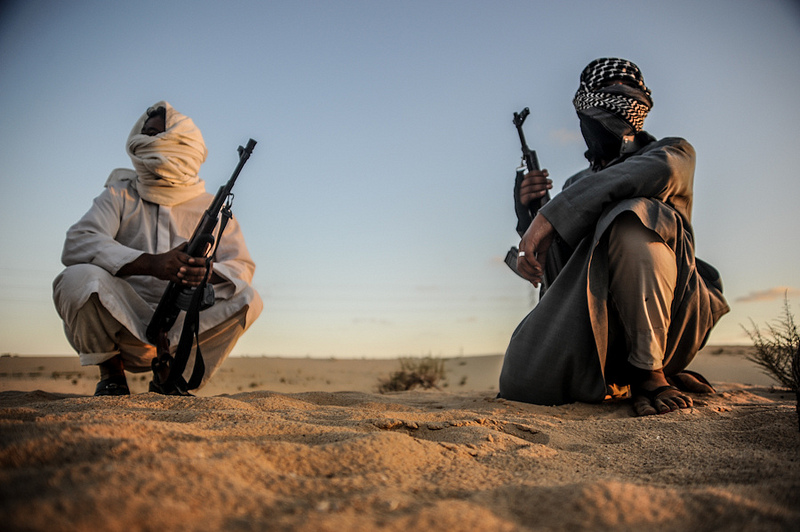
In April of this year, Israel’s Prime Minister Benjamin Netanyahu dubbed the Sinai Peninsula of Egypt a “kind of Wild West” after rockets fired from there targeted the resort town of Eilat. According to Netanyahu, the peninsula is exploited by Islamist militants helped by Iran to smuggle weapons and stage attacks on Israel. In August, 16 Egyptian border guards were killed in an attack by Islamist militants who then crossed the border. This is one of a string of violent incidents since Muslim Brotherhood candidate Mohamed Morsi was elected president of Egypt in June.
Since the fall of the Mubarak regime, Egypt has had to recalibrate its interactions with Israel and Palestine. The August attack exposed a particular set of vulnerabilities in Egypt’s security policies. The country was already shaken by riots and sectarian violence challenging Morsi’s presidency, and the border incident placed the spotlight on the messy question of who actually controls the country’s national security policy.
Is it the President jointly with the Ministry of Foreign Affairs, or the intelligence services, or the military… or all of the above? Before, active involvement of the presidency in the joint activities of the armed forces (SCAF) and intelligence agencies used to be the rule.
In response to the Sinai aggression, Egypt closed the Rafah Crossing indefinitely, a move denounced by Hamas in Gaza as “a collective punishment for all Palestinians…” Mubarak-era Minister of Foreign Affairs Amr Moussa called for the revision of the Camp David Agreements whereas many observers argued in favor of improved interactions with the Bedouin tribes or even the redeployment of forces in the Sinai region. This idea would not be far-fetched, as sending Egyptian forces into Sinai is part of the Egypt-Israel Peace Treaty anyway.
In a series of tweets [Ar], Egyptian analyst Ezzedine Fishere explained the need for a transparent policy highlighting that a much clearer stance towards both Israel and Palestine has to be adopted.
Given the complex context and the obscure rationale behind August’s attack in Sinai, “all sorts of conspiracy theories are afloat,” argued Egyptian blogger The Arabist, continuing:
… Egypt needs to act to re-impose itself strongly in the area: through a zero-tolerance for criminal gangs and armed groups, Bedouin or foreign, and through a genuine policy of development, job-creation and integration of Sinai into the national economy. It’s not easy, it’s long-overdue, and it needs to start sooner than later even if strong-arm tactics that will probably be involved may cause more trouble in the short-term.
Highlighting a recently published photo essay by Mosa’ab Elshamy, the blog ‘This Ongoing War’ points out:
Needless to say, given its physical proximity to Israel, Sinai is not only an Egyptian challenge. That it gets such a small degree of media attention is a puzzle.
Morsi’s beginnings in office were marked by a widely decried crackdown on freedom of expression, and the sacking of until-then almighty military officials making the President what many defined as the ‘new dictator’. Is the media silence politically motivated in the name of “balancing security and civil liberties”? While events in Sinai go underreported and the power structures of Egypt are still unsettled, it’s difficult to make estimations about how ‘wild’ this ‘west’ is.
For further information on the topic, please view the following publications from our partners:
Troubled Times for the Sinai Peninsula
For more information on issues and events that shape our world please visit the ISN’s Security Watch and Editorial Plan.

